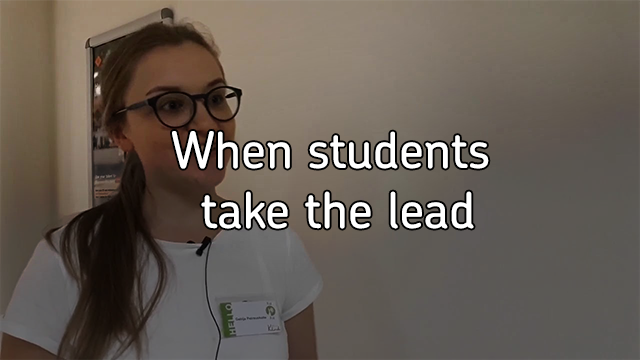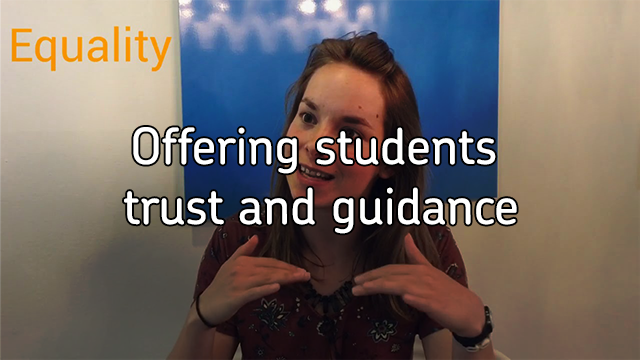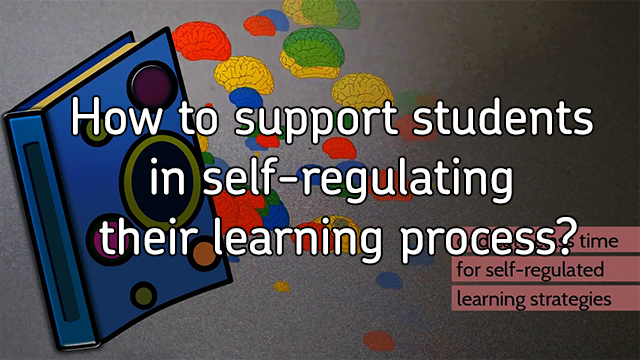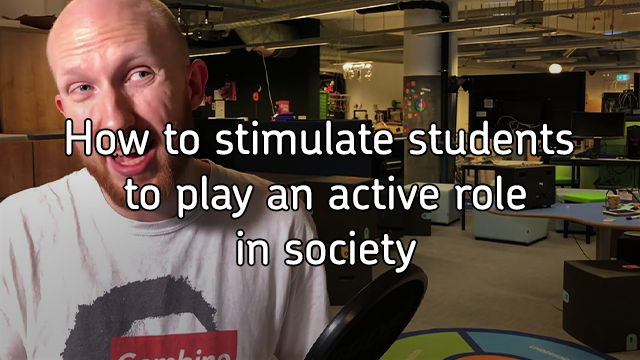How to stimulate students to take responsibility for their own development
This video demonstrates how to change a student’s view on their responsibility for their own development.
You can enable subtitles by pressing the CC icon on the video
The one in which you learn how to change students’ views on responsibility for their own development. Students might blame their lack of development on their teachers and think that academic achievement is an outcome of the system structure, and not of their own effort. This belief system hinders students from handling problems or failures in a positive way.
Too much freedom offered in honors programs can lead to frustration and dropouts.
To overcome this attitude, one should raise students’ awareness of their own competencies and possibilities for personal development. It is especially important to teach that failures can offer opportunities to grow. The following suggestions can change the students’ attitude:
- Provide opportunities for development
- See yourself as a coach and not mainly as a learning instructor
- Share the responsibility for the outcome of your projects with your students
By offering your students ways to take over the responsibility of their own development, they will learn to play an active part in their university. They will discover ways of changing structures and settings according to their own developmental needs. Teachers will be mentors supporting them. Students who want to learn from their choices and mistakes must realize that it is not only the academic system which is to blame if something does not work out as planned.
Questions for reflection
1. How are you dealing with failures in your own (work) life?
2. How do you support students when they fail?
3. What experiences have you had with students of a talent development program in failing a task? Is there a difference between students of regular classes?
4. How could you incorporate ways of mentoring and guiding your students through failures in your class?
https://journals.sagepub.com/doi/10.1177/0016986220905525
Levesque, C., Zuehlke, A. N., Stanek, L. R., Ryan, R. M. (2004). Autonomy and competence in German and American university students: A comparative study based on self-determination theory. Journal of Educational Psychology, 96(1), 68-84. https://doi.org/10.1037/0022-0663.96.1.68
Mendaglio, S. (2013). Gifted students’ transition to university. Gifted Education International, 29(1), 3-12. https://doi.org/10.1177/0261429412440646
Reis, S. M., McGuire, J. M., Neu, T. W. (2000). Compensation strategies used by high-ability students with learning disabilities who succeed in college. Gifted Child Quarterly, 44(2), 123-134. https://doi.org/10.1177/001698620004400205
Ryan, R. M., Deci, E. L. (2000). Intrinsic and extrinsic motivations: Classic definitions and new directions. Contemporary Educational Psychology, 25(1), 54-67. https://doi.org/10.1006/ceps.1999.1020
Ryan, R. M., Deci, E. L., Vansteenkiste, M. (2016). Autonomy and autonomy disturbances in self-development and psychopathology: Research on motivation, attachment, and clinical process. Developmental Psychopathology, 17(1), 139-170. https://doi.org/10.1007/s10902-006-9023-4
Speirs Neumeister, K. L . (2004). Understanding the relationship between perfectionism and achievement motivation in gifted college students. Gifted Child Quarterly, 48(3), 219-231. https://doi.org/10.1177/001698620404800306
Vansteenkiste, M., Ryan, R. M. (2013). On psychological growth and vulnerability: basic psychological need satisfaction and need frustration as a unifying principle. Journal of Psychotherapy Integration, 23(3), 263.
Vansteenkiste, M., Lens, W., Deci, E. L. (2006). Intrinsic versus extrinsic goal contents in self-determination theory: Another look at the quality of academic motivation. Educational Psychologist, 41(1), 19-31.
International Centre of the Study of Giftedness at the Westphalian Wilhelms-University of Münster
Vivian Marielle van Gerven – Teacher Educational Sciences
Judith Wenker – Student of Teacher Training (subjects History & English)
Carolin Böckers – Student of Teacher Training (subjects English & Mathematics)
Pictures: Judith Wenker & Vivian M. van Gerven
Voice: Carolin Böckers




